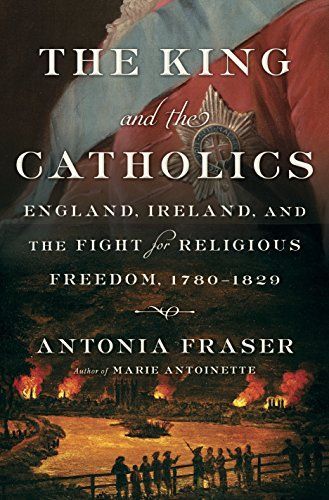
The King and the Catholics The Fight for Religious Liberty in Georgian England
From beloved historian Antonia Fraser comes the dramatic story of how Catholics in the United Kingdom won back their rights after two centuries of official discrimination. In the summer of 1780, mob violence swept through London. Nearly one thousand people were killed, looting was widespread, and torch-bearing protestors marched on the Prime Minister's residence at 10 Downing Street. These were the Gordon Riots: the worst civil disturbance in British history, triggered by an act of Parliament designed to loosen two centuries of systemic oppression of Catholics in the British Isles. While many London Catholics saw their homes ransacked and chapels desecrated, the riots marked a crucial turning point in their fight to return to public life. Over the next fifty years, factions battled one another to reform the laws of the land: wealthy English Catholics yearned to rejoin the political elite; the protestant aristocracy in Ireland feared an empowered Catholic populace; and the priesthood coveted old authority that royal decree had forbidden. Kings George III and George IV stubbornly refused to address the "Catholic Question" even when pressed by their prime ministers--governments fell over it--and events in America and Europe made many skeptical of disrupting the social order. But in 1829, through the dogged work of charismatic Irish lawyer Daniel O'Connell and with the support of the Duke of Wellington, the Roman Catholic Relief Act finally passed. It was a watershed moment, opening the door to future social reform and the radical transformation of the Victorian age. The King and the Catholics is a gripping, character-driven example of narrative history at its best. It is also a distant mirror of our own times, reflecting the dire consequences of state-sanctioned intolerance and showing how collective action and the political process can triumph over wrongheaded legislation.